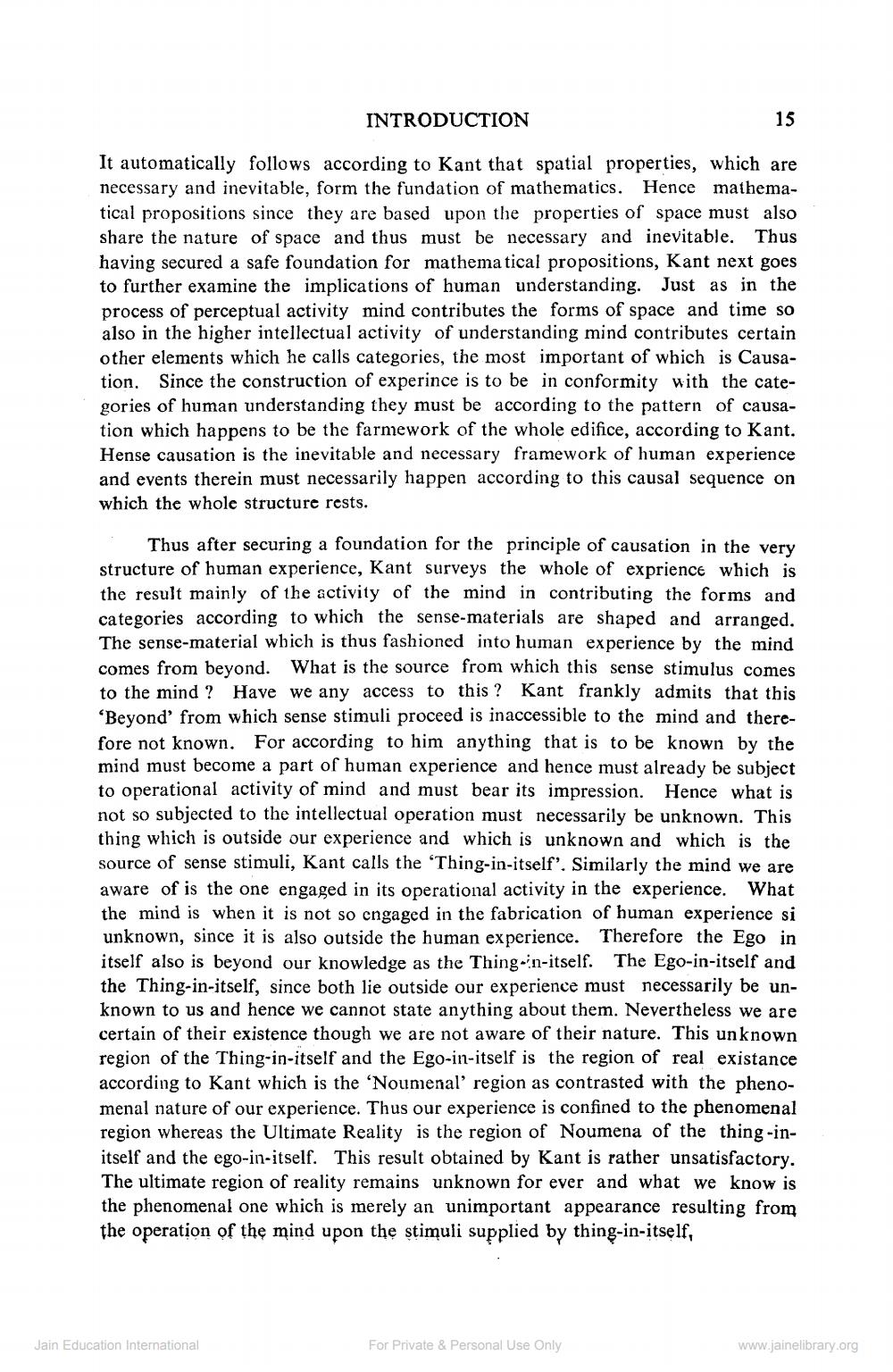________________
INTRODUCTION
It automatically follows according to Kant that spatial properties, which are necessary and inevitable, form the fundation of mathematics. Hence mathematical propositions since they are based upon the properties of space must also share the nature of space and thus must be necessary and inevitable. Thus having secured a safe foundation for mathematical propositions, Kant next goes to further examine the implications of human understanding. Just as in the process of perceptual activity mind contributes the forms of space and time so also in the higher intellectual activity of understanding mind contributes certain other elements which he calls categories, the most important of which is Causation. Since the construction of experince is to be in conformity with the categories of human understanding they must be according to the pattern of causation which happens to be the farmework of the whole edifice, according to Kant. Hense causation is the inevitable and necessary framework of human experience and events therein must necessarily happen according to this causal sequence on which the whole structure rests.
Thus after securing a foundation for the principle of causation in the very structure of human experience, Kant surveys the whole of exprience which is the result mainly of the activity of the mind in contributing the forms and categories according to which the sense-materials are shaped and arranged. The sense-material which is thus fashioned into human experience by the mind comes from beyond. What is the source from which this sense stimulus comes to the mind ? Have we any access to this? Kant frankly admits that this "Beyond' from which sense stimuli proceed is inaccessible to the mind and therefore not known. For according to him anything that is to be known by the mind must become a part of human experience and hence must already be subject to operational activity of mind and must bear its impression. Hence what is not so subjected to the intellectual operation must necessarily be unknown. This thing which is outside our experience and which is unknown and which is the source of sense stimuli, Kant calls the 'Thing-in-itself'. Similarly the mind we are aware of is the one engaged in its operational activity in the experience. What the mind is when it is not so engaged in the fabrication of human experience si unknown, since it is also outside the human experience. Therefore the Ego in itself also is beyond our knowledge as the Thing-n-itself. The Ego-in-itself and the Thing-in-itself, since both lie outside our experience must necessarily be unknown to us and hence we cannot state anything about them. Nevertheless we are certain of their existence though we are not aware of their nature. This unknown region of the Thing-in-itself and the Ego-in-itself is the region of real existance according to Kant which is the 'Noumenal' region as contrasted with the phenomenal nature of our experience. Thus our experience is confined to the phenomenal region whereas the Ultimate Reality is the region of Noumena of the thing-initself and the ego-in-itself. This result obtained by Kant is rather unsatisfactory. The ultimate region of reality remains unknown for ever and what we know is the phenomenal one which is merely an unimportant appearance resulting from the operation of the mind upon the stimuli supplied by thing-in-itself,
Jain Education International
For Private & Personal Use Only
www.jainelibrary.org




